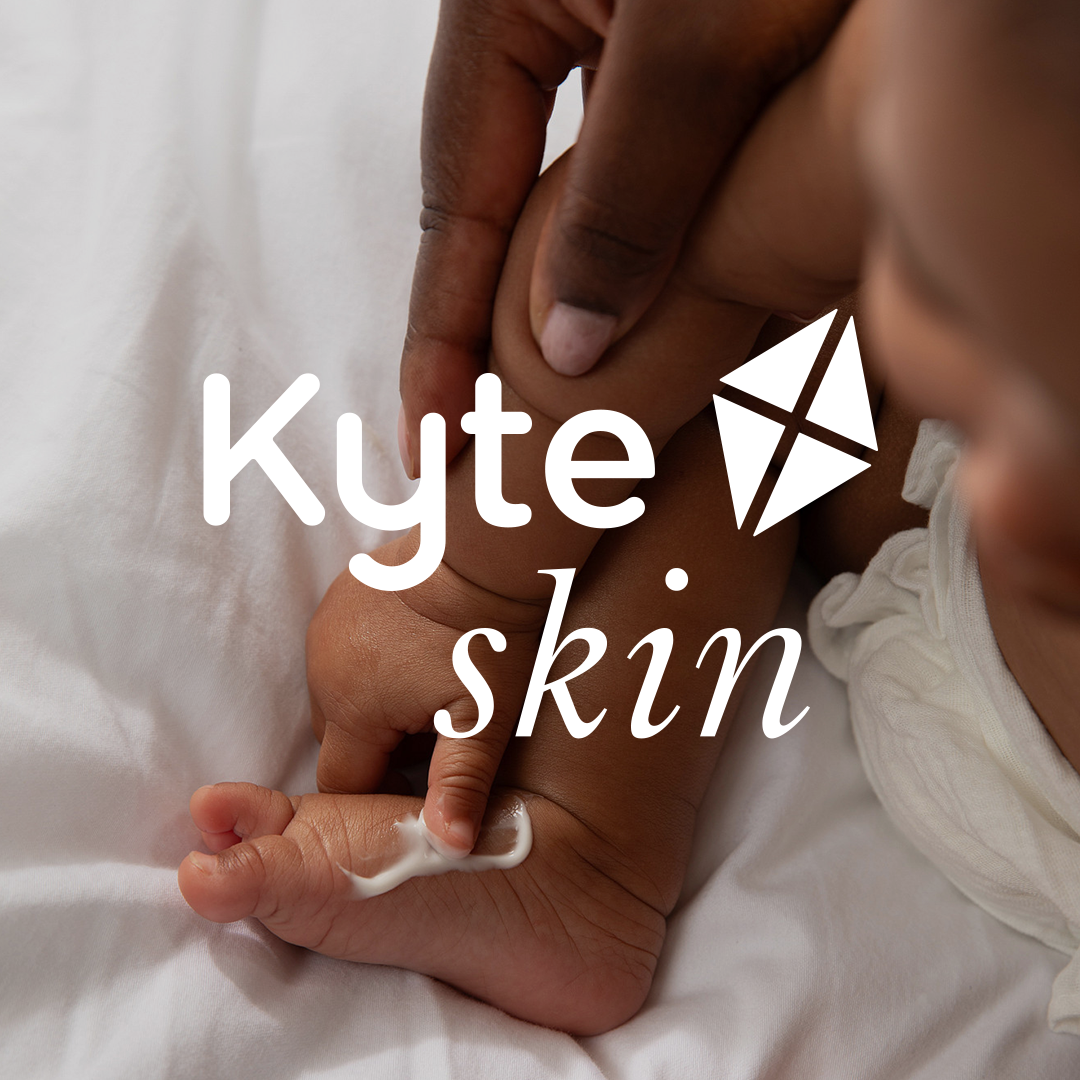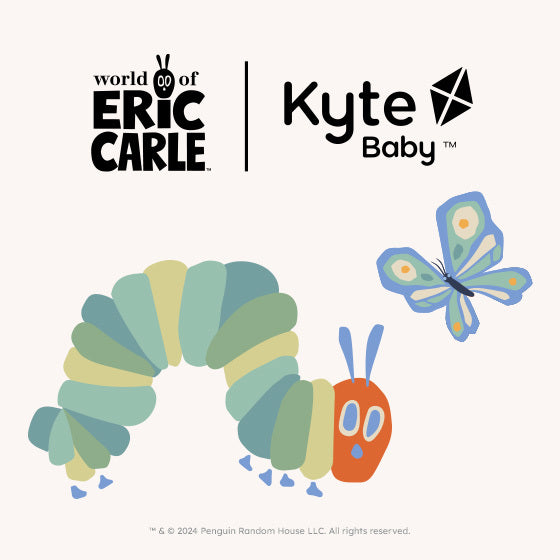An average newborn will spend most of their day sleeping. We like to call this the “honeymoon phase”! Basically, your newborn is sleeping around the clock, only waking for short periods of time to eat and get a diaper change.
Then you wonder if your newborn is sleeping too much, how long should a newborn sleep without feeding, why do newborn sleeps so much, or maybe you are having the opposite problem with your newborn not sleeping at all!
It can be hard for new parents to gauge how much sleep their newborn should get! Most newborns will also have their days and nights mixed up. This means they try to sleep all day and then they’re awake all night. That is hard for any parent since we are not nocturnal!
So why do newborns sleep so much? Well, newborns sleep a lot because their bodies are rapidly growing and sleep is essential for good development, including mental and physical development, but also their brain and central nervous system development!
This article will address:
- Newborn sleep cycle chart
- How much a newborn should sleep and is your baby sleeping enough?
- Newborn sleep schedules
- Day/night confusion
- Safe sleep and newborn sleep position
- How you can get your newborn sleeping more at night
- Warning signs of your newborn sleeping too much
What do newborn sleep cycles look like?
Newborns have two sleep cycles: light/active and deep/quiet. This means that during active sleep, your child is moving around a lot and can be woken very easily.
During deep sleep, your newborn is very still with deep and regular breathing and they are much less likely to wake than during light sleep.
A full sleep cycle for a newborn lasts about 40 minutes (20 minutes in light sleep and 20 minutes in deep sleep). It can be difficult for them to transition from light to deep sleep and that is why they take such irregular naps during the day time.
Pro tip: if you are assisting your baby to sleep and need to put them down, wait until they’ve been asleep for 20 minutes before putting them down so that they’ll transition into a deep sleep and at least give you 20 more minutes to use the restroom, eat, and maybe even shower!
After a light sleep cycle, they may wake up and groan, fuss, or cry and need your help getting back to sleep for the next sleep cycle. Always attempt more sleep if they are still acting tired and not exhibiting feeding cues as opposed to just getting them up for another awake period.
How much should a newborn sleep?
Most newborns will sleep 16+ hours in a 24 hour period. That means about 8 hours during the day and 8 hours at night.
Their nights are shorter than when they get older because their circadian rhythm is not set yet. They will sleep in short bursts at a time, anywhere from 2-4 hours both day and night.
While all babies are different (as in some may need slightly more sleep and some may need slightly less), 16+ hours of sleep is a good average to aim for!
Newborn Sleep Schedules

A newborn should not be on a set feeding or sleep schedule! Read that again: they should not be on a set schedule of any sort. You will most definitely want to follow their cues for both feeding and sleeping. Trying to keep them on any sort of “set schedule” can lead to failure to thrive which is very dangerous for a baby.
Newborn feeding cues may look like:
- Licking/smacking lips
- Opening mouth/sticking out tongue
- Latching onto anything close by
- Rooting
- Eating their hands/tight fists
- Fidgeting/trying to get into position to eat
- Fussing
- Angry cry
Once a newborn is full, they will release the nipple, turn away from the breast/bottle, relax their body and open their fists.
Newborn sleeping cues may look like:
- Less movement/stillness
- Staring/glazed-over eyes
- Rooting or acting hungry (comfort nurses or suckles)
- Disengaging with surroundings
- Droopy eyelids
- Red eyes/eyebrows
- Rubbing eyes
- Irritable/fussy/squirmy
- Sucking on hands/fingers/thumb
- Frowning/grunting
- Crying
Keep in mind though, that sleep cues can be hard to read so it’s best to learn your baby’s sleep needs and pay attention to the clock in order to prevent them from getting overtired.

Pro tip: getting overtired is usually the root of most newborn sleep issues. Plan for approximately 40 mins of awake time at any given time including feeding time in order to maximize sleep and prevent overtiredness.
The reason we want to avoid missing the sleep window is that babies who are overtired become much more difficult to settle. They fight to sleep the most when they need it the most!
Those sleep cues are the way they communicate their need for sleep so we want to be careful to not miss them. That will wreck their sleep and yours in turn.
Some babies may go from happy to screaming tired in the blink of an eye. For those babies, we want to watch the clock and start their routine before you see those signs or before they are melting down.
Most newborns will eat and sleep in 2-4 hour bursts. After eating, it will be very common for your newborn to want to go back to sleep.
That means “playtime” is a diaper change or snuggling on a parent’s chest for a little tummy time before settling back in for another nap.
The unfortunate part is that newborns don’t understand that their parents sleep at night time. This is because newborns have an underdeveloped pineal gland that doesn’t produce melatonin just yet!
The lack of sleep hormones is what causes day/night confusion.
Fun fact: if you are a breastfeeding mom, your milk contains sleep inducing hormones so priming your body for sleep will pass those hormones to your baby and help them sort out their days and nights a little quicker!
It is also important to note that your baby waking often is protective, meaning it can reduce their risk of SIDS. However, if your baby is sleeping well and your paediatrician has said you do not have to wake them, your baby is not at higher risk for SIDS.
This is because the wakings did not go away. You cannot take away protective, biological wakings. They are still waking up, they are just not telling you every single time they do it.
They wake up and fall back asleep without signalling to you that they were awake!
No one truly “sleeps through the night”, we just have the skills to return to sleep when we do wake up out of lighter sleep cycles. This is what your newborn is doing when they start sleeping longer stretches of time.
However, a very important change happens around 4 months of age. This is usually called the 4 month sleep regression.
Your baby’s sleep patterns have matured where they have more frequent sleep cycles therefore more opportunities to wake up!
You can read more about baby sleep regressions in this blog, but the summary is that generally if your newborn has the skills to fall asleep, then they will return to sleep without signalling to you that they need help going back to sleep.
That means when the permanent change to your baby’s sleep patterns happen, your independent sleeper will return to sleep because they have the skills to do so! If they need you, they will let you know. You cannot train that away.
Day/Night Confusion

You have probably heard the term “they have their days and nights mixed up!” This simply means they want to sleep all day and party all night.
As stated above, they have an underdeveloped pineal gland that does not yet produce sleep hormones.
This means they have nothing biologically signalling to them that it’s night time.
It is up to us as parents to help them sort it out and set their circadian rhythm! Some tips on how to do that are:
During the day:
- Interact with your baby during the day when they are awake with lots of talking
- Naps happen in a bright/noisy room
- Expose them to a lot of natural light during the day
- Get outside early in the day if the weather permits
During the night:
- Develop a pre-bedtime routine
- Limit any use of lights at night time
- Keep middle of the night feedings/wakings really boring
- Use white noise to avoid waking your baby unnecessarily
- Swaddling
This can be very hard for new parents (or any parent), so make sure you are taking care of yourself!
- Try not to overschedule yourself with a bunch of activities
- Take breaks
- Literally, sleep when your baby sleeps even if it is during the day. Laundry and dishes can wait!
- Put your phone down
- Ask for help and accept it when offered
- Put a “do not disturb” sign on the front door
- Try to get outside for a walk each day
- Consider joining a group with babies around the age of yours
Safe Sleep and Newborn Sleep Position
Per the AAP, the safest place for your baby to sleep is alone, in a crib/pack n play/bassinet with a tight fitted sheet, on their back.
You can read more about helping babies sleep safely in this blog post.
If your child has difficulty sleeping on their back, try these things:
- Swaddle them up nice and tight like a little burrito first
- Hold them for 15-20 minutes before putting them down
- Keep a heavy hand on them for a few minutes so that it’s not an abrupt transfer
- Warm their sleep space (check it with the back of your hand before laying them down)
- Loud white noise (and I do mean LOUD! Your womb level was ~80dB so don’t be afraid to really turn it up if needed.)
You can read this blog about when to stop swaddling your baby and this blog for using a sleep bag!
How can I get my newborn sleeping more at night?

Your main priority in the early days is to establish feeding and make sure your baby is gaining weight.
After that, most paediatricians will allow you to let your child sleep at night and wake you when they are ready for feeding instead of you having to wake them but this is definitely a discussion you want to have with them!
Babies have small stomachs and trouble regulating their blood sugar so that is usually why frequent feedings are important.
If your paediatrician clears your baby for more sleep at night, then you will want to use the above steps for preventing day/night confusion in order to maximize night sleep!
A study did find how long should a newborn sleep without feeding. It revealed that more than half of infants around 5 months of age were sleeping through the night with no feedings (10 hours, 8 pm-6 am).
It is also important to remember that newborns can be noisy during their light sleep cycles. If you just hear them rustling around, you can pause to see if they are truly awake and ready to eat or if they are going to fall back asleep on their own.
On top of being noisy sleepers, they also have irregular breathing patterns which can cause parents to worry and possibly panic during the night.
Newborns generally take 40-60 breaths per minute while he is awake. When he slips into a deeper sleep, that rate may slow to 20-30 breaths per minute. Or his breathing may become more shallow and rapid followed by a pause. This is normal too!
Other tips for getting your newborn sleeping more at night:
- Keep baby cozy (swaddling is great!)
- Monitor the noise level (as in crank up the white noise, it was loud in your womb!
- Keep the room temperature comfortable (between 68-72 degrees is recommended by the AAP)
- Light during the day if your baby is experiencing lengthy night wakings, otherwise you can dim the lights a little bit during the day to help them sleep!
- Keep it dark and boring at night time, even if they are awake and trying to party
Here is another blog to read about how much sleep a newborn and toddler needs at night!
Is my newborn sleeping too much?

Often, most newborns will spend more time sleeping than awake. Though it will happen in sporadic chunks or an irregular schedule!
Remember that in your womb, your baby spent a lot of time sleeping. They were nice and warm, cozy, and lulled by movement/sound of your voice/body.
Some babies may not wake up to eat in favour of sleeping, so follow your paediatrician’s advice for feeding in regular intervals to ensure adequate weight gain and prevent dehydration or other health issues.
The National Sleep Foundation recommends 14-17 hours of sleep for a newborn. Of course, some will sleep less due to things like colic, and some will sleep more.
They could sleep for 30 minutes or 4 hours! You never know what you will get. During the first few weeks, it’s typically the “honeymoon” phase where they wake up, eat, go back to sleep and you will definitely feel like they’re sleeping more than they are awake.
This is normal!
However, you may notice around 6-8 weeks (or earlier) that your baby “wakes up!” and is not as happy to sleep all the time like they initially did.
A lot can happen around this age, but you can refer to this blog for more information! Typically, you will start to see more social awareness and those social smiles after this time. It makes the sleepless days/nights worth it (sometimes)!
Newborn sleeping too much: causes
- A growth spurt or developmental milestone
- An illness, such as a cold
- Vaccinations
- Poor quality of sleep has caught up to them
You should worry if your newborn is sleeping too much if:
- Your baby has jaundice
- Lethargic
- Has trouble eating
- Extra fussy/irritable when they are awake
- Decreased diaper output
If you feel like your baby is not getting enough to eat and that is causing them to sleep more/become lethargic then that warrants a visit to the paediatrician!
For naps, you can count on as many as 6 naps or so a day, especially if they are short, or as few as 4 if you have a baby who takes longer naps.
Newborns generally have later bedtimes that move earlier as their circadian rhythm develops and they begin producing melatonin. The average newborn is going to sleep around 10 pm at night, waking around 6-7 am in the morning and taking naps that are inconsistent in length.
As they get older, their bedtime will generally fall within the 6-8 pm range which is in line with their circadian rhythm. Their morning wake up should be fairly stable!
What if your newborn is sleeping too much?

First, you will want to make sure that there is no medical cause to the extra sleepiness. Remember, jaundice, infections, and medical procedures can make them sleep more than usual.
To promote regular feeding and waking during the day, you can try:
- Going on walks during the day if the weather permits
- Develop a calming nap and bedtime routine
- Undress them before eating
- Use a wet washcloth on their face or extremities
- Make sure they are not overtired
- Change positions or burp frequently while feeding
If you are still having trouble waking your baby, then watch for a light sleep cycle. Your baby will be more active during this sleep cycle and you may have an easier time waking them!
Again, it is very common to have to wake a newborn to eat in the first few weeks but if you are ever concerned about how much newborns sleep, always refer to your paediatrician.
Can a newborn sleep too much? Not really! Only if they’re not gaining weight or have other concerns like jaundice.
According to The Happiest Baby, some newborns will rack up to 20 hours of sleep in a day! During the first day of life, your baby may not want to wake up because they are so exhausted by birth.
The general recommendation is to wake every 2-3 hours during the day and 3-4 hours during the night. Once your baby has gained their birth weight back, most paediatricians will allow your baby to wake you at night instead of the other way around.
If your baby is not gaining weight or has fallen off their growth curve, then your paediatrician may suggest continuing to wake at more regular intervals to encourage weight gain.
Do not try to keep your baby awake all day in hopes that they settle and sleep longer at night. Usually the opposite will happen; you will have an overtired baby who is even harder to settle when nighttime rolls around.
Awake time between sleep during the day is important for physical developments like learning to hold their head up, rolling, sitting, and crawling.
Newborns are not born as perfect sleepers!
But they need sleep as much as they need nutrition or physical touch. It is up to us as parents to help them meet all of their needs, including adequate sleep during the day and night.
You do not have to assume that your newborn does not need sleep if your newborn is not sleeping. There is likely a tweak somewhere you can make to maximize their sleep and get your newborn sleeping more at night and during the day.
How much do newborns sleep is a frequently asked question and unfortunately, it does vary a little bit from baby to baby because they have unique needs, but if you feel like your newborn is not sleeping enough or your newborn is sleeping too much, then that is worth exploring with your paediatrician!
Author Bio: Ashley Olson is a certified pediatric sleep consultant, owner of Heaven Sent Sleep, and passionate about helping new parents, experienced parents, desperate and sleep-deprived parents form healthy sleep habits for their children.
She has over 3 years of experience in working with families and has completed over 150 hours of coursework plus continuing education related to infant and toddler sleep. The focus of her work is on fostering a routine that grows your bond with your child while improving their sleep habits. She specializes in custom sleep plans and one on one support in changing sleep practices!























1 comment
Kimberly M
This blog was such a relief to read. As a FTM I constantly wonder if everything is normal or if everything is ok. This blog entry really helped me solidify that we’re on the right track and that everything is normal. It also has some great tips!
This blog was such a relief to read. As a FTM I constantly wonder if everything is normal or if everything is ok. This blog entry really helped me solidify that we’re on the right track and that everything is normal. It also has some great tips!